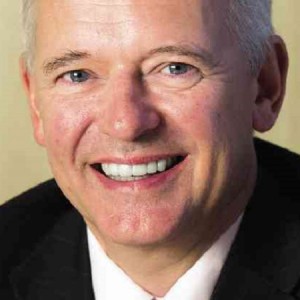What can make Filipinos globally competitive?
For Simon Culhane, chief executive of the London-based Chartered Institute for Securities and Investment (CISI), it is the skill level of the Filipino workforce that can set the difference, enable sustained investments and help an emerging country like the Philippines become more competitive.
“The No. 1 factor to become a financial center is to have a large pool of skilled people. If you haven’t got skilled people, the jobs won’t come, and while you can compete in terms of the cost [of labor] alone for a period, unless you can add value to the skills, those jobs will eventually move along like a commodity,” Culhane says in a recent exclusive interview with SundayBiz.
It is therefore crucial for an emerging country like the Philippines to raise the skill level of its workforce to ensure that it can lock those much needed investments that can generate high-value jobs over a long-term period.
And this is the reason why, according to Culhane, that CISI has decided to come to the Philippines.
“We have been looking at the Philippines, thinking that this is a place that’s going somewhere and we’d like to help it raise the skill base,” Culhane says in a recent trip to Manila.
The Philippines, he further stresses, is a growing area with a large, young population and an emerging economy. Some of their clients, which are multinational banks and are already here in the Philippines, are reportedly asking CISI to provide the Philippines with this chance to have “qualifications” at par with the global standards, thereby raising the skill levels of its workforce.
CISI, formed as not-for-profit organization by members of the London Stock Exchange in 1992, offers a broad range of over 50 globally recognized vocational benchmark qualifications and country-specific regulatory exams, mainly catering to those involved in financial institutions.
These exams, which are internationally recognized, cover all areas of securities and investments including wealth management, compliance, derivatives, risk management, investment management, derivatives, among others.
When one is able to pass these exams, he or she can gain a competitive working advantage not only here in the Philippines, but abroad as well since these are recognized globally. These exams certify that one has at least the fundamental knowledge and skills in a specific field in the banking and finance industry.
So far, close to 40,000 CISI exams have already been administered in nearly 90 countries, according to Culhane.
Such exams are used by organizations to help “benchmark staff to global best practice standards and achieve critical strategic goals.” Those who pass these qualifying exams can also become a member of CISI, which will give them continued access to various professional and personal benefits including an e-learning system that can test one’s knowledge on over 45 industry topics; online securities and investment reviews; the CISI TV and the CISI app that can be downloaded on one’s smartphone.
The London-based Culhane was in the country to help introduce these “qualifications” to the local banking and finance institutions as well as to multinational firms and universities. Culhane is likewise hoping that Philippine regulators would also recognize and approve their exams, which are likewise accredited by regulators in 20 other countries.
“I’m sure the Philippine workforce is ready for this. But it needs to be encouraged. So what we need is to get recognition at the high levels because people would hear [ranking officials] saying that this is a good exam. This is part of our challenge now, to get credibility as we have successfully done in so many other countries,” Culhane says.
“I say we have a very positive and encouraging response. We’ve yet to get there and quite naturally, people would want to do due diligence with us. That’s what is happening. We have future discussions to continue. I’ve come here to show my commitment to the Philippines,” he says of his visit to the country.
Robert Cronin, director for Asia Pacific at CISI, notes that interested individuals can simply check out their CISI website and book online to take the exams. They have already set up a testing center in Makati City, where a handful of individuals have already taken exams last year. This year, they expect to do roughly 200 exams.
“We expect exponential growth of about 400-600 exams by 2014, and then maybe a thousand or more in the next year or so. We’re seeing great interest in corporate clients and student marketplace. We’re in discussions with universities here to integrate this into their curriculum,” Cronin explains.
“People are very excited actually. There is a hunger on the part of the Filipinos to take on globally recognized qualifications. They want to be the best just like everyone. A lot of aspirational students wanted to get these qualifications when they plan to work overseas, because these are something globally recognized,” Cronin concludes.
